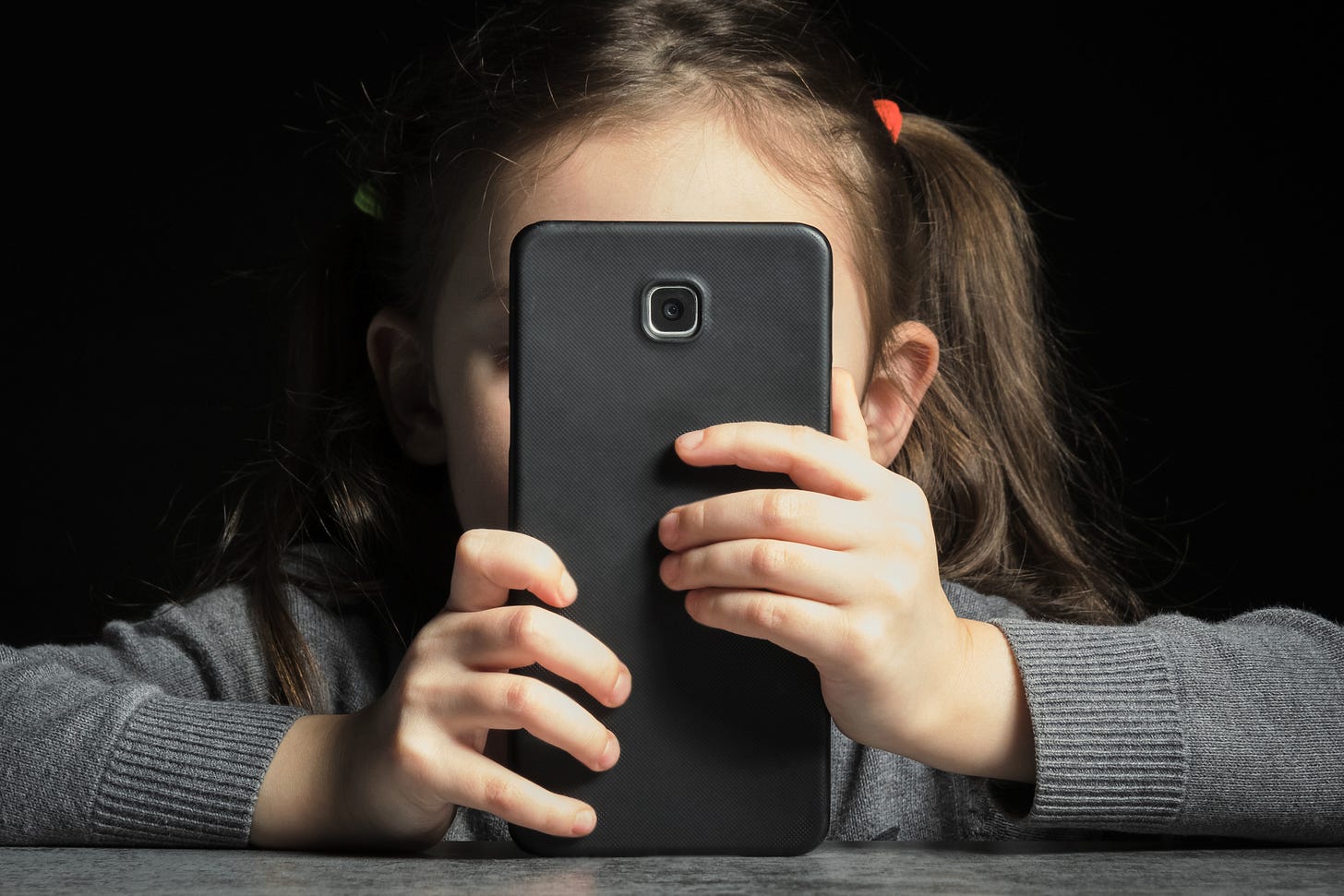My 9yo Has a Phone and My 12yo Doesn't
Here's why.
The other day, while I was driving soccer carpool, my 9-year-old proudly shared with her friends that she had a new phone. It’s her first phone, it’s bright red, and, yes, I bought it for her. Her friends oohed and aahhhed. One of them rolled down the window and shouted the news to the rest of their soccer bodies as we pulled out of the parking lot. I remember thinking, Oh boy. Are all the other parents going to judge me?
My 12-year-old, on the other hand, doesn’t have a phone yet. And he’s not at all upset that his little sister does.
As you know if you’ve read my book or my newsletters on the topic, I’m generally not a fan of black-and-white proclamations — or rules — about broad issues like technology. Yes, I think the longer you can wait to introduce your kids to social media, the better. But I am not convinced that phones and social media are entirely responsible for the recent explosion of teen mental health woes, even though, yes, some other people do. (For the record, I do think they are playing a part, but I believe the adolescent mental health crisis is a complex phenomenon with complex causes.)
In my opinion, tablets, phones and screen time are not a monolithic thing that we should be painting with a broad brush. How technology affects kids depends on what kids are doing with it and what their relationship with that technology is. I also don’t think it’s fair to make blanket statements like, “Kids under 13 should never have a phone,” because it all depends on why, how, and how frequently they are using it.
In other words, the details matter. And in our case, they definitely do.



